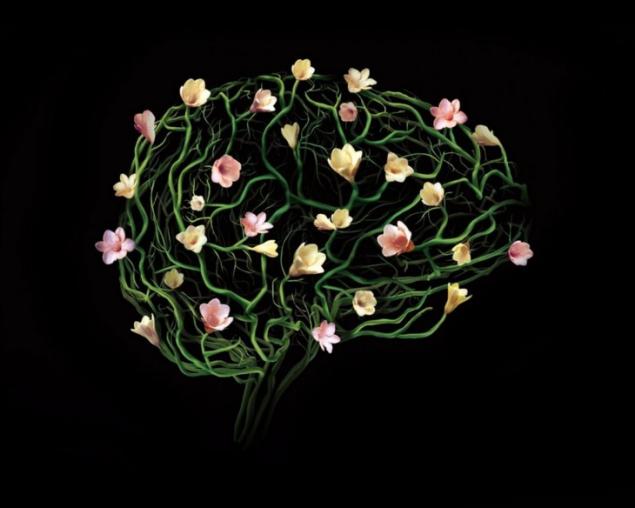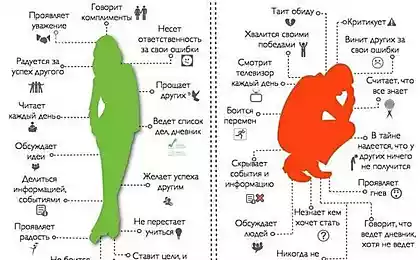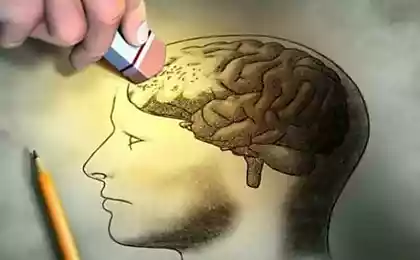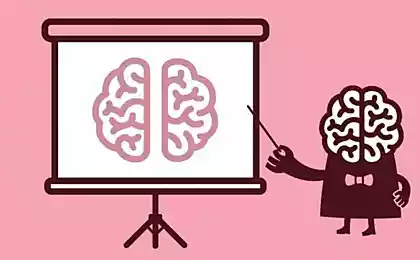751
5 facts about how our brain makes us idiots
Most of your brain loves to harm you, And he does it in many different ways. The site holds the exposure of secret mischievous! 1. His senseless consumption choices we stand struggled h2> Life presents us with many situations in which we have to make a choice, and this is perfectly normal. However, when the same approach we start to apply to things immaterial, to all sorts of little things, then buy a ticket to "stations idiots" and that - one way ticket.
2. We think we know people better than they have h2> Have you ever met the man, the essence of which was visible to you at first sight? Probably yes. And in general, do not seem to you that the majority of people for you - like an open book, and they are very easy to read?
3. The illusion of saving time: we tend to exceed the speed like idiots h2> We all know that drivers exceed the speed of love, so do you. And if you're driving a car, at least once I caught myself thinking that leads it as a fool, it is likely, you is a fool.
4. "The effect of Buki" We repeat past information without exposing it questioned h2> In one of the chapters of the book about Winnie the Pooh main character and his friend Piglet found on two sets of footprints in the snow. They decide to find out who owns these tracks. In the search for mysterious creatures Winnie the Pooh and Piglet came up with their names Byaka and beech. In the end it turned out that one set of footprints belonged Piglet, the second - Winnie-the-Pooh.
5. Pollyanna principle: we refuse to deal with unpleasant things h2> Have you ever ignored some important morally case later feel guilty and endlessly engage in soul-searching? Do you think something like, "It was really terrible, the guy seems to be shut down in the snow ... but for some reason I just walked past ?!» No, it's not because you're the most violent people in the world. This is a fairly common phenomenon, known as "Pollyanna principle».
1. His senseless consumption choices we stand struggled h2> Life presents us with many situations in which we have to make a choice, and this is perfectly normal. However, when the same approach we start to apply to things immaterial, to all sorts of little things, then buy a ticket to "stations idiots" and that - one way ticket.
The fight for the little things today, the phenomenon is so widespread that we hardly have time for her to follow. gamers on the PC against amateur game consoles, Windows users against users of Mac OS, fans of Edward against fans Dzhykoba (characters in the movie "Twilight") - this is only a little of what makes people venturing "holy war" in the vast network.
The reason the whole thing alone: failure in the brain, now known as "distorted perception of the choice made». This failure makes us think that the things that we choose - the best.
It does not matter how smart you wish to buy, mind your already all decided long ago, so he could easily convince you that it is this particular smartphone is the pinnacle of mobile technology, as otherwise you would just did not buy it. The distortion in the perception of the choice made has multiplied in your head esteem bought the gadget and its shortcomings you do not pay absolutely no attention.
Moreover, it's a distortion, in turn, can make you see things that you did not choose, but their negative side. Just for this reason, we believe that the gadget is purchased by another person , obviously worse than ours.

2. We think we know people better than they have h2> Have you ever met the man, the essence of which was visible to you at first sight? Probably yes. And in general, do not seem to you that the majority of people for you - like an open book, and they are very easy to read?
Most people automatically consider themselves a sort of tough guys when it comes to understanding other people. This is another "brain failure", which is known as the "illusion of asymmetric insight": failure causes us to believe that we can see any person through and through, while we ourselves for that person - completely impervious.
Illusion of asymmetric insight - it is our lack of sensory perception, and this deficiency is caused by the fact that we are not able to watch a side the same way as we watch others. And the brain uses this shortcoming to mislead us. Because of this, we are starting to think that we have a supernatural ability to understand others.
And then suddenly it turns out that the friendly guy who lives next door, for many years worked unimaginable atrocities. That's just one of those around it somehow did not guess.
3. The illusion of saving time: we tend to exceed the speed like idiots h2> We all know that drivers exceed the speed of love, so do you. And if you're driving a car, at least once I caught myself thinking that leads it as a fool, it is likely, you is a fool.
However, there is another version, which can also explain your behavior: your brain just does not allow you to "properly" be aware of the very concept of time.
«The illusion of saving time" - this is quite a tricky thing. It uses your "command center", located in the skull, to not give you the right to assess the time you can save by increasing the speed .
In essence, the brain makes us think that a quick ride on the machine will turn us into sort of Time Lord, and we are willing to agree with this.
The error in the estimation of the time due to the illusion of saving it may manifest itself differently in different people. However, most often it is the result of excessive speed with predictable consequences.
4. "The effect of Buki" We repeat past information without exposing it questioned h2> In one of the chapters of the book about Winnie the Pooh main character and his friend Piglet found on two sets of footprints in the snow. They decide to find out who owns these tracks. In the search for mysterious creatures Winnie the Pooh and Piglet came up with their names Byaka and beech. In the end it turned out that one set of footprints belonged Piglet, the second - Winnie-the-Pooh.
So, "the effect of Buki" - similar to everything described above. But it happens in life, with real people, and certainly not without the intervention of the brain.
According to the "effect Buki", our brain has a habit of relying on past information, despite the fact that the information may be wrong.
Actually, this is quite a natural reaction. However, if it will do everything it can become a huge problem. For example, many people may begin to invoke some quite unsubstantiated facts, distort the information and correct it just to make it sound more interesting, and it will continue as long as the essence not appear completely distorted. And this, in turn, will inevitably affect people's lives.
5. Pollyanna principle: we refuse to deal with unpleasant things h2> Have you ever ignored some important morally case later feel guilty and endlessly engage in soul-searching? Do you think something like, "It was really terrible, the guy seems to be shut down in the snow ... but for some reason I just walked past ?!» No, it's not because you're the most violent people in the world. This is a fairly common phenomenon, known as "Pollyanna principle».
"Pollyanna principle" - a psychological phenomenon, which consists in the fact that your brain sometimes gives you a sense of false, and sometimes completely unjustified optimism to you for the good.
This phenomenon is occupying your mind can make you minimize the evil that is in close proximity to you, by permanent muting threatening and unpleasant you incentives, allowing you to focus on things that really pleasant for you.
Even if your neighbor Godmother home drunk and starts to kick up a row, "Pollyanna" quickly convince you to stay in your "comfort zone": you sit on the couch and playing video games continue, despite the nightmare things happening behind the door.
via factroom.ru
Slaughter fotobomby: consider that in the background!
10 life lessons that can be learned from the Buddhist teachings

























